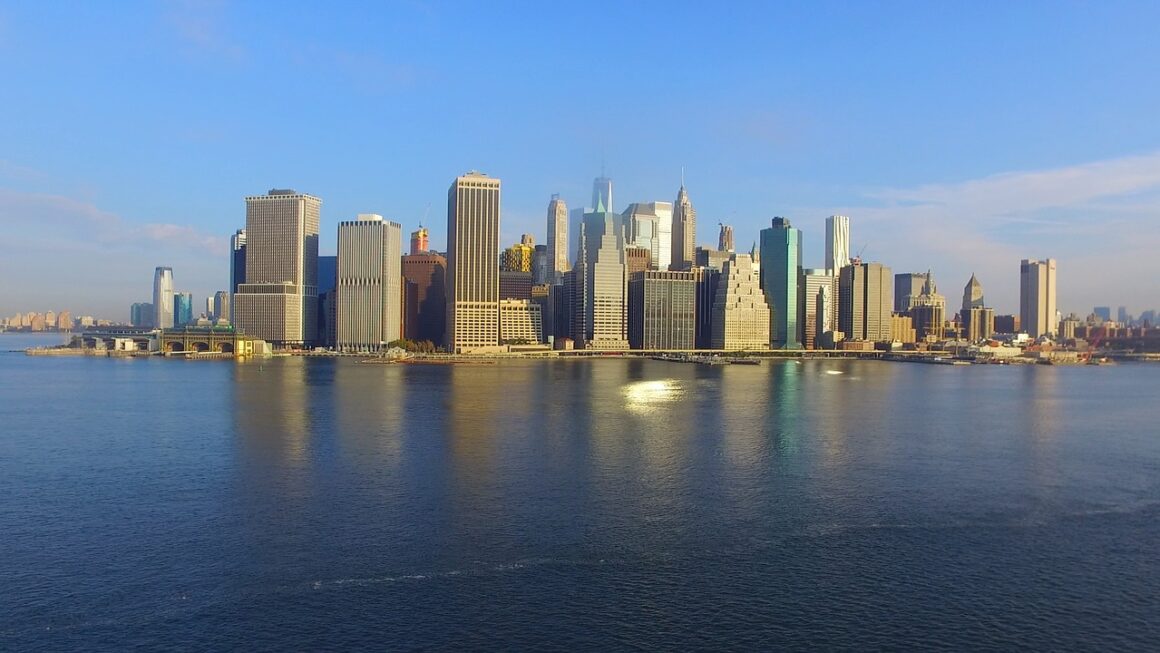The United Nations (UN) is a cornerstone of global cooperation, a vital organization striving to maintain international peace and security, develop friendly relations among nations, achieve international cooperation, and be a centre for harmonizing the actions of nations. Established in 1945 after the devastation of World War II, the UN represents a collective commitment to preventing future conflicts and addressing global challenges that transcend national borders. This blog post delves into the intricate structure, functions, and impact of the UN, exploring its key components and its ongoing efforts to shape a more peaceful and sustainable world.
The Foundation and Structure of the UN
The UN Charter: The Guiding Document
The UN’s foundational document is the UN Charter, a treaty that outlines the rights and obligations of member states. It establishes the main organs of the UN and provides the framework for its activities.
- It highlights the principles of sovereign equality of all its members.
- It stipulates that disputes should be settled peacefully.
- It advocates for refraining from the threat or use of force against the territorial integrity or political independence of any state.
Principal Organs of the UN
The UN operates through several key organs, each with specific responsibilities:
- General Assembly: The main deliberative, policymaking and representative organ of the UN. All 193 Member States are represented, each having one vote. It addresses a wide range of issues, from peace and security to economic development and human rights.
- Security Council: Responsible for maintaining international peace and security. It has 15 members, including five permanent members (China, France, Russia, the United Kingdom, and the United States) with veto power.
- Economic and Social Council (ECOSOC): Focuses on economic, social, cultural, and humanitarian issues. It coordinates the work of the UN’s specialized agencies, funds, and programs.
- Secretariat: The administrative arm of the UN, headed by the Secretary-General. It provides studies, information, and facilities needed by the UN bodies. The Secretary-General acts as a spokesperson for the UN and uses his/her good offices to prevent international disputes.
- International Court of Justice (ICJ): The principal judicial organ of the UN. It settles legal disputes between states and gives advisory opinions on legal questions referred to it by authorized UN organs and specialized agencies.
- Trusteeship Council: Initially established to supervise the administration of Trust Territories as they transitioned to self-government or independence, it suspended operations in 1994 after Palau, the last remaining Trust Territory, gained independence.
Specialized Agencies, Funds, and Programmes
The UN system encompasses a vast network of specialized agencies, funds, and programmes, each addressing specific global challenges:
- UNICEF: Focuses on the rights and well-being of children.
- WHO: Dedicated to improving global health.
- UNESCO: Promotes education, science, and culture.
- World Bank: Provides financial and technical assistance to developing countries.
- International Monetary Fund (IMF): Works to foster global monetary cooperation, secure financial stability, and facilitate international trade.
- UNDP: Works to eradicate poverty and reduce inequalities.
- UNHCR: Protects refugees and forcibly displaced communities worldwide.
- WFP: The world’s largest humanitarian organization addressing hunger and promoting food security.
Maintaining International Peace and Security
Peacekeeping Operations
UN peacekeeping operations are deployed to conflict zones to maintain peace and security, protect civilians, and support political processes. These missions involve military, police, and civilian personnel.
- Example: The UN Peacekeeping Force in Cyprus (UNFICYP), established in 1964, continues to maintain a buffer zone between the Greek Cypriot and Turkish Cypriot communities.
Conflict Prevention and Resolution
The UN engages in various activities to prevent conflicts from escalating and to resolve existing disputes through mediation, negotiation, and diplomacy.
- Example: The Secretary-General’s good offices are often used to mediate between conflicting parties and facilitate peace talks.
Sanctions and Enforcement
The Security Council can impose sanctions on member states that threaten international peace and security. These sanctions can include economic measures, arms embargoes, and travel bans. Military enforcement is also possible, authorized by the Security Council.
- Example: Sanctions have been imposed on countries engaged in nuclear proliferation or supporting terrorism.
Promoting Human Rights and Humanitarian Action
The Universal Declaration of Human Rights
The Universal Declaration of Human Rights (UDHR), adopted by the UN General Assembly in 1948, sets out fundamental human rights to be universally protected.
- It includes rights such as the right to life, liberty, and security of person.
- It includes freedom from slavery and torture.
- It includes freedom of opinion and expression.
- It includes the right to education.
Human Rights Mechanisms
The UN has established various mechanisms to monitor and promote human rights, including:
- Human Rights Council: An inter-governmental body responsible for strengthening the promotion and protection of human rights around the globe.
- Treaty Bodies: Committees of independent experts that monitor states’ compliance with international human rights treaties.
- Special Procedures: Independent experts appointed by the Human Rights Council to examine and report on specific human rights themes or country situations.
Humanitarian Assistance
The UN provides humanitarian assistance to people affected by conflicts, natural disasters, and other emergencies.
- Example: UNHCR provides protection and assistance to refugees and internally displaced persons. WFP provides food assistance to those in need.
Sustainable Development Goals (SDGs)
The 2030 Agenda
The 2030 Agenda for Sustainable Development, adopted by all UN Member States in 2015, provides a shared blueprint for peace and prosperity for people and the planet, now and into the future. At its heart are the 17 Sustainable Development Goals (SDGs).
Key SDGs
The SDGs cover a wide range of interconnected issues:
- Goal 1: No Poverty: End poverty in all its forms everywhere.
- Goal 2: Zero Hunger: End hunger, achieve food security and improved nutrition and promote sustainable agriculture.
- Goal 3: Good Health and Well-being: Ensure healthy lives and promote well-being for all at all ages.
- Goal 4: Quality Education: Ensure inclusive and equitable quality education and promote lifelong learning opportunities for all.
- Goal 5: Gender Equality: Achieve gender equality and empower all women and girls.
- Goal 13: Climate Action: Take urgent action to combat climate change and its impacts.
- Goal 16: Peace, Justice and Strong Institutions: Promote peaceful and inclusive societies for sustainable development, provide access to justice for all and build effective, accountable and inclusive institutions at all levels.
Implementation and Monitoring
The UN plays a crucial role in coordinating and monitoring the implementation of the SDGs, working with governments, civil society, and the private sector. The High-level Political Forum on Sustainable Development (HLPF) is the central UN platform for follow-up and review of the 2030 Agenda.
Challenges and Criticisms
Reform and Efficiency
The UN faces ongoing challenges related to reform and efficiency, including streamlining its bureaucracy and improving coordination among its various agencies.
- Criticism: Some argue that the Security Council’s veto power is undemocratic and prevents effective action in certain situations.
Funding and Resources
The UN relies on voluntary contributions from member states, which can be unpredictable and insufficient to meet its growing needs.
- Challenge: Securing adequate and reliable funding for peacekeeping operations and humanitarian assistance remains a constant struggle.
Geopolitical Tensions
Geopolitical tensions and competing interests among member states can hinder the UN’s ability to address global challenges effectively.
- Example: Disagreements among Security Council members can prevent the adoption of resolutions needed to address conflicts.
Conclusion
The United Nations stands as a testament to humanity’s aspiration for a more peaceful, just, and sustainable world. Despite facing numerous challenges and criticisms, the UN continues to play a vital role in addressing global issues, from maintaining peace and security to promoting human rights and sustainable development. By understanding its structure, functions, and impact, we can better appreciate the UN’s crucial role in shaping the future of our planet and work towards strengthening its effectiveness in the face of evolving global challenges. Recognizing both its strengths and weaknesses is essential to supporting its mission and ensuring that it remains a relevant and effective organization for generations to come.




